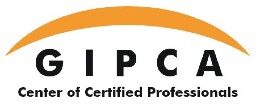Professional Certification, After Graduation Certification, Professional Designation or Trade Certification (often called simply certification or qualification) is a standardized certification that enables an individual to prove some degree of competency in a particular job function or career. Upon completion of certification requirements, which typically entail passing an exam administered by an industry specific credentialing organization, a certificate credential awarded. The National Organization for Competency Assurance (NOCA) current sets quality standards for credentialing.

Types of Certification
In Generally, there are three kinds of professional certification including corporate (internal), product-specific and profession-wide. Corporate or internal certifications are company specialized and are designed to meet purposes unique to an organization’s requirements. This certificate has limited portability because of that it has a small value outside of the company, which provided the certification. Product-specific certifications are more compact than corporate certifications and more valuable. Product-specific certification is prevalent in the information technology (IT) industry where professionals can become certified on versions of industry-specific hardware and software platforms, for example, Cisco Certification and Microsoft Certification. The most important type of certification is profession-wide. This sort of certification is created to be portable across a whole industry that makes the holder of this certificate qualified to work in the profession, not just for one segment of the industry or a particular employer. Some need to be renewed periodically or may be valid for a given period as a part of a complete renewal of certification; it is common to show proof of constant learning — often termed continuing education — or earning continuing education units (CEU).
Benefits of Certification
Nowadays professional certifications have found its way into every industry as it helps employers evaluate potential hires, select contractors, analyze job performance, market services, evaluate employees and motivate employees to enhance their skills and knowledge. Certificate holders get the benefit too as it gives recognition of competency; show commitment to the profession, and helps with job advancement. It also makes them more in line with the next promotional progression in their role and demonstrates their employer that are a valuable member of the team and that they willing to learn new things.
As technology, management and science methods change at an ever-increasing rate; a gap formed among the foundation given by an academic study and the technical and management competencies required in now professional and business environment. The Professional Certification Programs were established to bridge this gap. It is founded in almost every industry today. Finance (CPA), Human Resources (SHRM), Supply Chain (APICS), Information Technology (ITIL), Project Management (PMI), are few from a wide range of professions certifications that have voluntary and mandatory certification. Professional Certification benefits are many as employees gain practical abilities for the job focusing on the knowledge and skills at the same time.
Moreover, it realizes maximum benefit from a wide range of expertise areas. In addition to learning all aspects of a particular type of career pursuance, while also providing the industry with a standard of assured excellence from these professionals. It efficiently integrates these career pursuits into one’s particular work setting. Finally, Professional Certification can be Prestige for individual as certification holders get respect via public and also held in high esteem by their peers within the functional community, who see them as part of an elite group.
If you did not get an after graduation certification yet at any level, I advise you to start looking for one that attracts your interests and helps you in your career development. If you already certified, I invite you to seek a higher-level certification. Embrace certification for yourself, for your profession, but most important, embrace it for the public we serve and protect.

